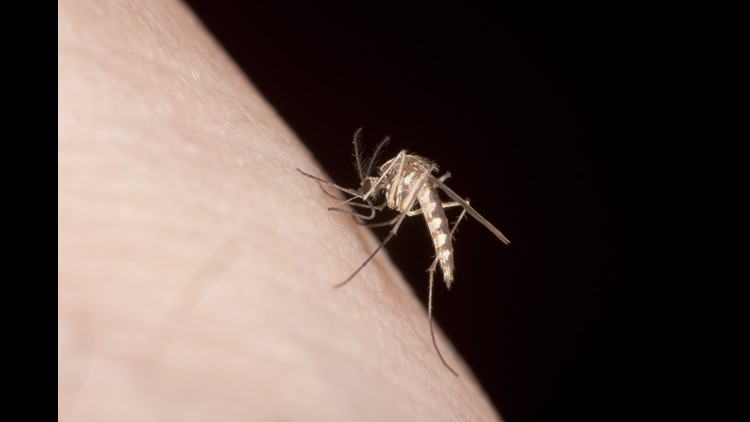HARTFORD — Officials say mosquitoes trapped in Voluntown, North Stonington and Stonington have tested positive for Eastern Equine Encephalitis.
Some of the mosquito traps contained mosquito species that are known to bite humans, according to Ledge Light Health District.
“All residents of Voluntown, North Stonington and Stonington are advised to avoid outdoor activities from one hour before to one hour after dawn and dusk,” said Ledge Light Health District in a release.
Ledge Light Health District said EEE is a rare but serious disease caused by a virus that is transmitted by mosquitoes. They go on to say that the virus has been found in trapped mosquitoes in Connecticut, but only one person has died from EEE to date.
In total, seven towns with mosquitoes trapped have tested positive for the virus.
Towns include Chester, Haddam, Hampton, Killingworth, North Stonington, Stonington, and Voluntown.
DEEP released the followings statement:
Some of the mosquito species that tested positive for the virus are known to bite people and horses. This season, two cases of EEE virus infection have been reported in horses. No human infections of EEE virus have been identified.
“No human cases of EEE have been reported in Connecticut since 2013,” cautioned DPH Commissioner Renée Coleman Mitchell, “however, it is important for all Connecticut residents, especially in the southeastern part of the state, to take recommended precautions to avoid mosquito bites seriously.”
Additional precautions to avoid mosquito bites include:
- Be sure door and window screens are tight-fitting and in good repair.
- While outdoors, wear shoes, socks, long pants, and long-sleeved shirts. Clothing material should be tightly woven.
- Use mosquito netting if sleeping outdoors.
- Consider using mosquito repellent when it is necessary to be outdoors and always use them according to label instructions. The most effective repellents
contain DEET or Picaridin. Oil of lemon eucalyptus is also effective for brief periods of exposure. - When using DEET, use the lowest concentration effective for the time spent outdoors (for example, 6% lasts approximately 2 hours and 20% for 4 hours)
and wash treated skin when returning indoors. Do not apply under clothing, to wounds or irritated skin, the hands of children, or to infants less than 2 months
Measures to reduce mosquitoes around the home include:
- Dispose of water-holding containers, such as ceramic pots, used tires, and tire Swings, clogged gutters.
- Drill holes in the bottom of containers such as those used for recycling.
- Change water in bird baths on a weekly basis.
- Clean and chlorinate swimming pools, and cover pools when not in use.
- Use landscaping to eliminate areas where water can collect on your property.
You can click here for more information.



